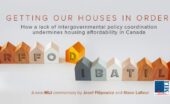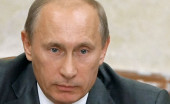Re Ian Bremmer 'Could third-party candidates upend the 2024 US election?' 3 April The current political movement in the USA…
Canada: government & governance November 2023-
Written by Diana Thebaud Nicholson // April 6, 2024 // Canada, Government & Governance // Comments Off on Canada: government & governance November 2023-
New Canadian laws and rules coming in 2024, and how they’ll affect you
A new year often brings new federal regulations and rules. In 2024, there will be a slew of new laws that come into effect – some as early as Jan. 1 – including changes to Canada Revenue Agency’s tax rules, increases to hourly minimum wages, timelines for Ottawa’s dental insurance program and changes to the country’s bail system.
Here is a breakdown of the new federal and provincial laws coming this year, and how they will affect you.
New CRA tax rules
From remote worker changes to payroll deductions, here’s what to look out for this year when it comes to the CRA’s latest tax rules. … (1 January 2024)
6 April
Beneath ArriveCan
MPs want to know how a mobile app’s costs grew out of control. An abandoned house on an Ontario First Nation is an important stop in the search for answers
On the shore of Ontario’s Rice Lake, the houses on Vimy Ridge Road include an abandoned-looking property with a dark grey roof. It is tied to a man who has become an important figure in the political controversy over how the ArriveCAN app was paid for. … In corporate records, the home is the registered address for David Yeo, a former soldier who is now an entrepreneur and the founder of Dalian Enterprises Inc., one of the companies at the centre of a growing controversy over government contracting related to the ArriveCan mobile app.
…the ArriveCan investigations have also raised questions about the PSIB, the program Mr. Yeo participated in. It has come under scrutiny for a feature that some critics say can be exploited: non-Indigenous businesses are allowed to receive federal contracts under the program, as long as they partner with Indigenous businesses in joint ventures. In those cases, the government requires that at least a third of the total value of the work be performed by an Indigenous company or Indigenous subcontractors.
This aspect of the program has been key to the success of Mr. Yeo’s company.
Dalian Enterprises, which last month was suspended from federal contract work, received $7.9-million in taxpayer funds to build ArriveCan, according to a recent report from the federal Auditor-General, who said her numbers were only an estimate because of poor recordkeeping. The company has long availed itself of the PSIB, including for the ArriveCan work. Mr. Yeo told parliamentarians at a hearing in March he had advised the government on designing and implementing the program. “It’s a very good policy,” he said via video conference.
4 April
Lawrence Martin: Trudeau shouldn’t reject Chrétien and Harper’s offer on 24 Sussex
Former prime ministers Jean Chrétien and Stephen Harper have volunteered to lead a campaign to raise the money to do a restoration of the building. They would do so with donations from individuals and businesses who want the embarrassment to end. There would be limits on contributions so no one could claim credit as a prime driver.
They would do the work for $1, with the goal of having the renovation completed within two to three years.
How could anyone object to that? Two giants of the Liberal and Conservative parties joining hands to preserve a prime piece of our heritage. In this era of knee-jerk partisanship, what a fine example of non-partisanship it would be.
2 April
An open letter to Canada’s political leaders – for the sake of the country’s future
We, the undersigned, are calling on you to address urgently the rise of incivility, public aggression and overt hatred that are undermining the peace and security of Canadian life. This issue is so important that it transcends partisanship.
Whether they are connected to geopolitical events happening thousands of kilometres away or derived from homegrown causes, one cannot deny that tensions are on the rise in our streets and on our campuses.
We believe this phenomenon is part of a broader, worrisome trend. Canadians appear increasingly unwilling, unable or ill-equipped to talk to or live peaceably alongside those with divergent views of complex and divisive issues including, as in the current instance, those with significant geopolitical overtones and implications.
What is going on? In the case of the current conflict between Israel and Hamas, perhaps its particular contours and content are so significant in scale and impact that some Canadians feel justified acting out in intimidating and violent ways. Perhaps strident ideologies have erased the nuance required to understand complex events fully. Perhaps a growing number of us no longer consider it part of a common Canadian value system to put aside our differences and work alongside those with whom we disagree in the broader interests of Canada. Or perhaps such negative tendencies were always present in Canada and it has taken the increasing ubiquity of social media to reveal them fully.
19 March
MPs poke holes in ArriveCan contractor’s claims that his government employment was no conflict
David Yeo raised the hackles of MPs of all parties on the public accounts committee Tuesday during his testimony marked by contradictions and confrontation
The embattled head of ArriveCan contractor Dalian told MPs he was never in conflict of interest while working at the Department of National Defence, despite his signature appearing on a Dalian contract with government as he became a public servant.
12 March
Public sector watchdog will be latest to dig into ArriveCan scandal
(Global news) Public Sector Integrity Commissioner Harriet Solloway is probing “several allegations of wrongdoing” and looking into complaints alleging two former Canada Border Services Agency officials faced “reprisals” for accusing their superiors of “misleading” Parliament about who ultimately hired GC Strategies — the IT firm behind the program.
The two-person company is now at the center of a widening political scandal, after Auditor General Karen Hogan found the problem-plagued app cost taxpayers at least $59 million.
Solloway confirmed her review into the matter in a letter dated March 4 and sent to Conservative MP Kelly Block, who had recently written to her about the pandemic-era app.
6 March
Companies at heart of ArriveCan scandal received more than $100M in government contracts
Part of the issue was a ‘glaring disregard’ for basic procurement principles
Companies run by two consultants at the heart of the ArriveCan scandal received over $100 million in government contracts since 2011, according to a new government tally.
Speaking to the House public accounts committee Wednesday, federal Comptroller General Roch Huppé said he ordered a tally of all contracts given to GC Strategies and its predecessor Coredal — both owned by Kristian Firth and Darren Anthony — following conflicting reports by the government and media in recent weeks.
15 February
Security and access cards, office key stolen in most recent theft of justice minister’s vehicle
The department says security passes were deactivated when the theft was reported
13-15 February
Tasha Kheiriddin: ArriveCAN could be the nail in the Liberal coffin
Prime Minister Justin Trudeau is bent on throwing bureaucrats under the bus. They have a lot to answer for, but so do their political masters.
By the numbers, the federal government’s ArriveCAN app is a disaster. Designed during the pandemic to pre-screen travellers to Canada, its cost ballooned from $80,000 to $59.5 million — and possibly more.
Over $12 million worth of invoices for work done on the project was potentially unrelated to it. Over 10,000 people were told by the app to quarantine when they didn’t have to, and only 10 per cent of travellers have continued to use ArriveCAN since it was made optional. …
The unknown cost, and political price of the ArriveCan app
Canada’s Auditor General has found the government overpaid for the ArriveCan app … And poor record keeping has made it impossible for her to figure out that final total. Transcript
9 February
What Canadians think about the Emergencies Act, according to Nanos polling
(CTV) The majority of Canadians still support the federal government’s use of the Emergencies Act to shut down the so-called “Freedom Convoy” protests in early 2022, according the new data from Nanos Research.
The survey found 44 per cent of people “support” the use of the Act, in addition to 20 per cent of people who “somewhat support” the move.
Six per cent of people “somewhat oppose” the use of the legislation, versus 27 per cent who said they “oppose” it.
The numbers are similar to those gathered nearly two years ago, in late 2022, which showed 48 per cent of respondents “support” the use of the Emergencies Act in response to the protests
8 February
Government of Canada hosts National Summit on Combatting Auto Theft
Today, the Honourable Dominic LeBlanc, Minister of Public Safety, Democratic Institutions and Intergovernmental Affairs; the Honourable Arif Virani, Minister of Justice and Attorney General of Canada; the Honourable Pablo Rodriguez, Minister of Transport and Quebec Lieutenant; the Honourable François-Philippe Champagne, Minister of Innovation, Science and Industry; and the Honourable Anita Anand, President of the Treasury Board; convened provincial, territorial and municipal government officials, industry leaders and law enforcement representatives from across the country at the National Summit on Combatting Auto Theft.
23-25 January
Court rules convoy must return to Ottawa after finding Emergencies Act unreasonable
(The Beaverton) In addition to restoring the convoy protesters’ hopelessly dug-in position among the downtown Ottawa core, Mosley emphasized that all other conditions must be replicated as well. The Judge ordered the Ottawa Police to stand down and welcome any truckers with open arms, the Ontario Provincial Police to promptly forget how to find Ottawa, and for Premier Doug Ford to immediately disappear on a snowmobiling trip.
… At press time, the returning convoy protestors have been forced to fight for space in downtown Ottawa with the numerous homeless encampments that have sprung up in the meantime.
Judge delivers blow to Trudeau
(GZERO media) Canada’s Federal Court ruled Tuesday that the prime minister’s government violated the constitutional rights of anti-mandate protesters by cracking down on the convoy protests that paralyzed Ottawa in 2022.
By invoking the Emergencies Act, the government forced reluctant tow-truck drivers to tow the trucks that had paralyzed Ottawa for a month. The act also allowed the government to freeze bank accounts belonging to protesters and shut down much of downtown Ottawa while police cleared the streets.
On Tuesday, Justice Richard Mosley ruled for the Canadian Civil Liberties Association, which argued that invoking the Emergencies Act led to the violation of the rights of Canadians. It “led to infringement of Charter rights,” he wrote.
… Did Tucker Carlson and other conservative American critics of Justin Trudeau have a point? Canada’s Federal Court ruled Tuesday that the prime minister’s government violated the constitutional rights of anti-vaccine mandate protesters by cracking down on the convoy protests that paralyzed Ottawa in 2022.
By invoking the Emergencies Act, the government forced reluctant tow-truck drivers to tow the trucks that had paralyzed Ottawa for a month. The act also allowed the government to freeze bank accounts belonging to protesters and shut down much of downtown Ottawa while police cleared the streets.
The ruling came as Trudeau and his cabinet were finishing a retreat in Montreal ahead of the winter Parliamentary session, throwing the government off balance as it attempted a much-needed communications reset. Deputy Prime Minister Chrystia Freeland defended the action and said the government would appeal the ruling.
Conservative leader Pierre Poilievre, meanwhile, welcomed the ruling, saying that Trudeau “caused the crisis by dividing people. Then he violated Charter rights to illegally suppress citizens. As PM, I will unite our country for freedom.”
When Trudeau ordered the streets cleared, some American conservatives, including Carlson, argued that the prime minister was being tyrannical. Republican congresswoman Lauren Boebert even called for Canada “to be liberated.”
On Wednesday, a day after the ruling, Carlson visited Alberta for two events with conservative Premier Danielle Smith. But before he arrived, he called Trudeau’s office to warn them he was coming to “liberate Canada.” At the event, he pressed Smith to intervene in the case of four convoy protesters charged with conspiring to murder RCMP officers. She expressed regret about the limits of her office.
Invocation of Emergencies Act unreasonable, measures against Freedom Convoy unconstitutional: court
(Canadian Lawyer) Federal Court found decision to declare emergency fell short of Emergencies Act requirements
The decision of the Prime Minister and Cabinet to invoke the Emergencies Act was unreasonable, and some of the measures directed at the Freedom Convoy protests were unconstitutional, the Federal Court has found.
Federal Court Justice Richard Mosley concluded that the decision to declare an emergency fell short of the requirements under the Emergencies Act. He also found some of Ottawa’s temporary measures aimed at the protests infringed the Charter.
The act requires that to declare a public order emergency, there must be a “threat to the security of Canada.” The threat must be one outlined in s. 2 of the Canadian Security Intelligence Service Act. The federal government’s proclamation relied on s. 2(c): “activities within or relating to Canada directed toward or in support of the threat or use of acts of serious violence against persons or property for the purpose of achieving a political, religious or ideological objective within Canada or a foreign state.” The threat cannot be “lawful advocacy, protest or dissent,” unless it is carried out in conjunction with one of the four “threats to the security of Canada,” defined in s. 2.
Ottawa’s use of Emergencies Act against convoy protests was unreasonable, violated Charter, court rules
(CBC) Government says it plans to appeal the decision
2023
27 December
Ottawa, we have a problem: the federal public service
Donald Savoie
(Globe & Mail) What on earth is going on in Ottawa? One day we are informed that a federal government department signed a $670,000 contract with a consulting firm asking for advice on how to cut back awarding consulting contracts. A few days later, two senior federal public servants pointed at one another to explain why contracts with a private sector firm went horribly wrong. Two federal public servants blaming each other raises fundamental questions about the principle of ministerial responsibility, which underpins our parliamentary system.
A few days later, we were told that federal government call centres, with an annual price tag of $368-million, are not meeting reasonable service standards, notwithstanding seeing the number of full-time staff going from 2,651 to 5,610 over an eight-year period. And a few days after that, Canadians were told that there is a profound malaise in Canada’s diplomatic service.
We know that the size of the federal public service has grown by 24 per cent over the last eight years and spending on outside consultants has increased by a third over the past five years. But growth in the size of the federal government and the scale of government spending has not improved access to government programs and services. Public-opinion surveys report a growing frustration over the deteriorating level of federal government services: Nearly 50 per cent of Canadians report that they are “very unsatisfied” or “unsatisfied” with the services the federal government provides. We need to go below the surface to understand why.
5-6 December
‘Profound malaise’ lingers in Canada’s diplomatic service, Senate committee finds
Canadian governments have undermined their diplomatic corps for two decades by failing to spend money and recruit foreign service officers, a Senate committee has found.
Ottawa needs to “reinvest” in the country’s diplomatic muscle to ensure that the country is “prepared to meet the complex global challenges of the decades to come,” the Senate’s Foreign Affairs Committee reported Wednesday.
Auditor-General to review CRA call centres as complaints on the rise despite more funding
The Canada Revenue Agency recently tabled information in Parliament showing its budget for call-centre operations is at $368.6-million for the current fiscal year.
More than six years after warning of excessive waiting times and frequently unreliable answers from Canada Revenue Agency call centres, Auditor-General Karen Hogan is planning a fresh review after concerns that client complaints are well above prepandemic levels – in spite of major spending and staffing increases.
9 November
Can Mark Carney save Justin Trudeau?
By Max Fawcett
Over the last week, two things have become abundantly obvious to anyone watching Canadian politics. First, Justin Trudeau is in deep, deep trouble — deeper even than the SNC-Lavalin scandal or the revelation of his Blackface photos in 2019. And second, Mark Carney’s interest in his job is much more than just a rumour. As Carney told the Globe and Mail, running for Trudeau’s job isn’t a decision he’s ruled out. In the dialect of aspiring political leaders, that’s as close an answer to “hell yes” as you’re going to get.
These two things are closely related, of course. Carney wouldn’t be getting asked about his own leadership aspirations if Trudeau’s standing wasn’t so diminished, and Trudeau’s political problems might not be quite so dire if he had more people with Carney’s economic credentials — which is to say, any — in his caucus and cabinet.
Is Canada coming apart at the seams?
David Moscrop
If Canada’s provinces weren’t squabbling with the federal government, it wouldn’t be Canada. But lately, these tensions seem to be cropping up more forcefully at every turn, and they couldn’t come at a worse time.
(GZERO North) The Alberta factor
In recent weeks, Alberta Premier Danielle Smith has launched an effort to take half the money in the Canada Pension Plan and set up a separate, Alberta-only pension scheme. The feds, unsurprisingly, say “no way” and have warned of significant economic pain if the province splits from the national plan.
But it’s not just the Albertans. As the struggle over pensions and electricity regulations plays out in the West, provinces across the country are fighting with Ottawa over carbon pricing.
Since 2019, Canada has had a federally mandated price on carbon for any provinces that don’t have their own local emissions taxes. It is one of the government’s signature climate policies. But now, with inflation high and his political fortunes in question, Prime Minister Justin Trudeau is suspending the carbon tax on home heating oil for three years in a bid to give consumers a break.
It just so happens that home heating oil is used primarily in Atlantic Canada, where the Liberals are doing particularly badly in the polls. Now, some other provinces want carve-outs for the fuels that they use too.
Even the deepening housing crisis isn’t immune from conflict between the premiers and the prime minister. In a meeting on Tuesday, provincial heads blasted the federal government’s approach of bypassing provincial governments to cut housing construction deals directly with municipalities. One premier is even considering a law to prevent the feds from making the local bilateral deals at all.
[Federal government will spend $900M to build housing in Quebec, matched by province]
An old challenge looms. As if all of this wasn’t enough of a problem, the mother of all federal-provincial tensions is quietly stirring again. A recent poll found support for Quebec separation rising several points to 38%, a jump from the 32% support it enjoyed in 2020. Meanwhile, a Quebec plan to increase university tuition costs for out-of-province students, also aimed at shoring up Francophone dominance, has sparked fresh protests.
All of this couldn’t come at a worse time. The federal government is trying to tackle overarching challenges like climate change, healthcare, and housing that require comprehensive approaches. But with the Liberal government trailing in the polls by double digits, provinces may smell blood in the water and believe now is the time to strike for concessions. (9 November 2023)
9 November
Trudeau government unveils plans to cut $500 million in spending
Government spending cuts vary widely by department
While some agencies like the Canadian Space Agency and the Invest in Canada Hub will see more than one per cent of their spending frozen and returned to government coffers, 61 departments and agencies don’t appear on the list of government bodies taking cuts.
The government said the cost-cutting initiative excluded agents of Parliament and small organizations with budgets under $25 million a year. But many of those not included on the list of organizations affected — such as the Canadian Air Transport Security Authority, the Canadian Security Intelligence Service and the National Capital Commission — have budgets much higher than $25 million.
7 November
Government defends hiring consulting firm KPMG to find ways to save money
KPMG hired to find ways to cut spending on IT, property
“There are times when you actually need an external perspective to help you to think about how to find cost efficiencies … ” Natural Resources Minister Jonathan Wilkinson told reporters Tuesday on his way into cabinet. …
Wilkinson’s comments came in the wake of news reports saying the government paid KPMG nearly $670,000 to find ways to save money — and after the the Trudeau government announced an initiative to tighten spending and reduce its reliance on outside consultants.
Ottawa paid nearly $670,000 for KPMG’s advice on cutting consultant costs



